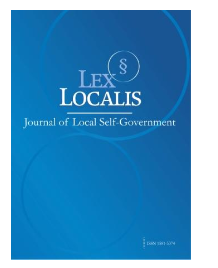EXPLAINING WELL-BEING AND HAPPINESS THROUGH HUMAN VALUES IN ORGANIZATIONAL CONTEXTS: EVIDENCE FROM MEXICO
DOI:
https://doi.org/10.52152/kxweq994Keywords:
Human values, well-being, happiness.Abstract
The aim of this study was to examine the influence of selected human values on well-being, which may also manifest in happiness, within the adult Mexican population that could be applied to organizations. This research employed an observational, ex post facto, cross-sectional, and explanatory design. A total of 1,721 records were drawn from the World Values Survey (WVS) database, collected between 2017 and 2022. The instrument underlying these data covers a broad range of social topics, from which eleven items were selected for the present analysis. Statistical processing was conducted using R Studio’s lavaan package, applying several structural equation models with latent variables to test a set of specific research hypotheses, using the maximum likelihood covariance method. The results yielded Cronbach’s alpha and omega coefficients above 0.70, and average variance extracted (AVE) values equal to or greater than 0.50 for the constructs. Acceptable fit indices were obtained across absolute, incremental, and parsimonious measures. Findings showed that seven exogenous variables explained approximately 22% of well-being, while six of these variables accounted for about 12% of happiness. Furthermore, the results indicate that well-being is a significant predictor of happiness.
These findings have important professional implications for organizations. Understanding how human values influence well-being and happiness can guide the development of workplace policies, programs, and interventions aimed at improving employee satisfaction, engagement, and productivity. By fostering environments that align organizational practices with employees’ core values, managers and HR professionals can enhance overall organizational climate, reduce turnover, and promote a culture of psychological well-being that supports both individual and collective success.
Downloads
Published
Issue
Section
License
Copyright (c) 2025 Lex localis - Journal of Local Self-Government

This work is licensed under a Creative Commons Attribution-NonCommercial-NoDerivatives 4.0 International License.








